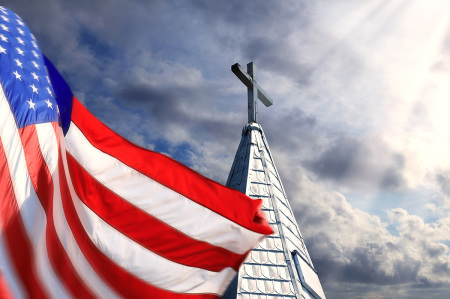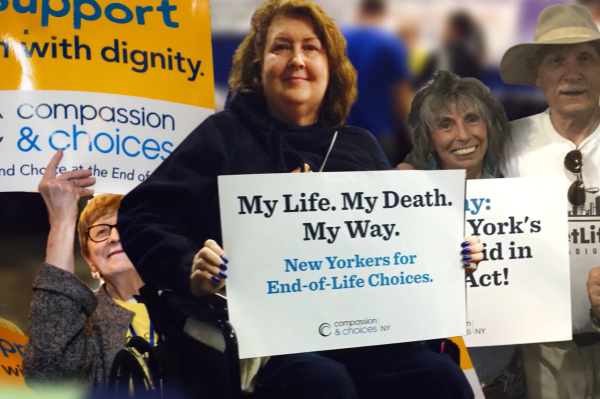Many pastors say Christians are more loyal to their political party than to the faith: survey

New research reveals that a majority of pastors thinking about stepping away from ministry are concerned that Christians identify more with their political views than their faith, one of several factors causing church leaders to consider leaving their professions.
Officials from the Barna Research Group held a webinar Wednesday outlining two trends that reshaped ministry in 2022. One of the trends that reshaped ministry, based on research conducted by Barna, found that “many pastors are struggling, but a majority are staying the course.”
In September, Barna asked Protestant pastors if they had given “serious consideration to quitting being in full-time ministry within the last year.” Thirty-nine percent answered in the affirmative, a slight decline from the 42% who reported that they were considering leaving full-time ministry in October 2021 and an increase from the 29% who said the same in January 2021.
Barna identified “the immense stress of the job” as the leading cause of pastor burnout. Fifty-six percent of pastors who were considering quitting cited stress as a major reason for their discontent. Forty-three percent of pastors thinking of abandoning full-time ministry reported feeling “lonely and isolated,” while 38% pointed to “current political divisions” as a factor leading them to consider a career change.
Barna asked pastors to elaborate on how “current political divisions” have emerged as a source of stress, causing them to consider stepping away from full-time ministry. Majorities of both mainline (66%) and non-mainline Protestant pastors (53%) expressed concern that “Christians are more loyal to their political views than their faith.”
Overall, mainline Protestant pastors were more likely than their non-mainline counterparts to see political division as a problem affecting their ability to carry out their duties. Forty-seven percent of mainline pastors stated that “Christians’ political partisanship reflects poorly on the church” compared to 42% of non-mainline pastors.
Forty-two percent of mainline pastors and 38% of non-mainline pastors asserted that “the church should be a place of peace, not division.” When asked if the church was “too aligned with Christian nationalism,” 39% of mainline pastors answered in the affirmative, while 26% of non-mainline pastors agreed.
Roughly equal shares of mainline (21%) and non-mainline Protestants (16%) reported that “debates about racial justice issues has made it harder for me to lead.” Additionally, 29% of mainline pastors and 19% of non-mainline pastors maintained that “the church is too aligned with political conservatism.” Far smaller shares of both mainline (8%) and non-mainline pastors (4%) believed that “the church is too aligned with political liberalism.”
Concerns that “regardless of what I do, congregants are dissatisfied with my choices” registered at 17% among mainline pastors and 14% among non-mainline pastors. Exactly one-fourth of mainline pastors insisted that they were “not interested in leading people when it comes to political issues,” as did 17% of non-mainline pastors. Only on the question of whether they faced “pressure to publicly align with a political party” were non-mainline pastors (12%) more likely to answer in the affirmative than their mainline counterparts (5%).
Political divisions were also the tenth most frequently chosen item on a preselected list asking pastors about the “most stressful parts of ministry,” with 16% of pastors experiencing unease about the intersection of politics and faith.
More common sources of stress prompting pastors to consider quitting included a lack of volunteers (51%), concerns about attendance (38%), pastoral care responsibilities (33%), financial concerns (31%), demands of the various programs and ministries (25%), lack of staff (22%), pressure to discuss or remain silent about certain topics (19%), low pay (18%) and comparisons to other pastors (16%).
Loneliness and isolation constituted the third factor leading many pastors to reconsider their careers in full-time ministry. Thirty-one percent of pastors said that they frequently felt “emotionally or mentally exhausted,” along with 47% who “sometimes” experienced such feelings, 19% who “seldom” reported emotional or mental exhaustion, and 2% who “never” did. Thirteen percent of pastors told Barna they were seeing a “spiritual advisor” to cope with their exhaustion.
Similarly, 13% turned to a “personal mentor” to address their feelings of exhaustion, 11% sought the services of a “professional counselor,” 8% had seen a therapist, 5% had obtained services from a “professional mentor” and 4% had obtained the services of a “life coach.” While some pastors turned to more than one mental health professional to deal with their exhaustion, the majority of pastors surveyed by Barna (65%) asserted that they did not seek such assistance.
The other trend that reshaped ministry in 2022 dealt with attendance dips and shifts. Specifically, Barna determined that millennials were “re-engaging” with the church while baby boomers were “dropping out” altogether.
Statistics highlighted by Barna documented a rise in weekly church attendance among millennials, increasing from just over 20% in 2019 to well over 35% in 2022. By contrast, weekly church attendance among baby boomers dropped from slightly more than 30% in 2020 to about 25% this year.
Barna’s research found that “millennials of color are leading the way with church engagement.” While non-white millennials had a weekly church attendance rate of just under 25% in 2019, that number nearly doubled to approximately 45% in 2022. On the other hand, white millennials had a weekly church attendance rate measured at less than 20% in 2019 and increasing to about 35% this year.
Barna’s Associate Vice President for Church Engagement Savannah Kimberlin credited millennials as the generation responsible for keeping the weekly church attendance rate steady at 29% since 2019. While the weekly church attendance rate among the American public as a whole has remained steady in recent years, the 29% figure represents a noticeable drop from the 43% weekly attendance rate in 1993.
“Something drastic happened in our nation right around 2008, 2009, 2010 that sparked a downward trend that has not yet reversed,” Kimberlin said. Although she stressed that “we cannot say for sure what sparked this downward trend,” she suggested “a couple of things that happened in our nation right around that time” might have played a role in the decrease in church attendance.
Kimberlin explained: “Millennials, the top end of the millennial generation, became adults right around that time. There was a presidential election. Facebook exploded with popularity worldwide, the iPhone was released right around that time, so multiple ingredients in the mixer, more or less, probably contributed; we can say with confidence, probably contributed to this downward trend that has not yet reversed.”
Ryan Foley is a reporter for The Christian Post. He can be reached at: ryan.foley@christianpost.com





















